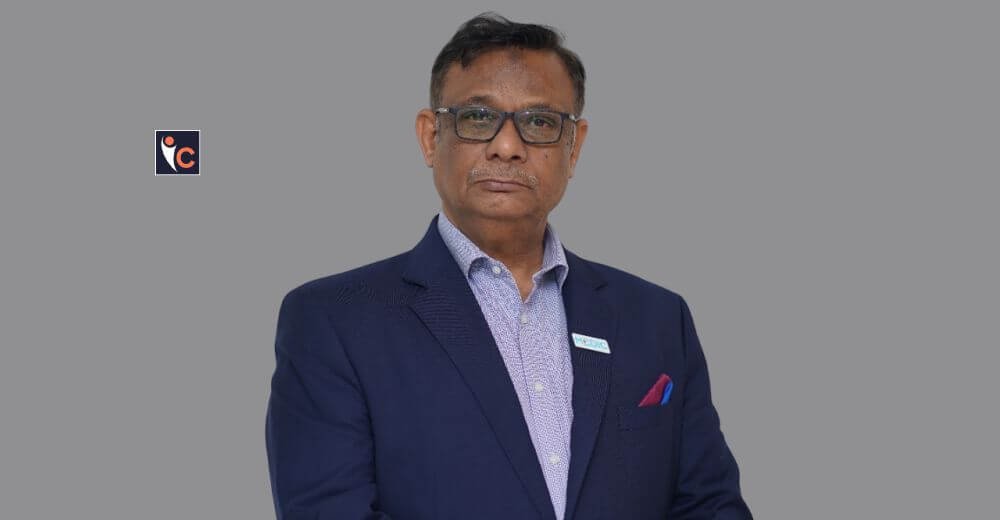The rehabilitation industry demands leaders driven by a profound passion for helping others reclaim their lives. In this landscape of care there emerges a figure whose dedication to the well-being of others is nothing short of inspirational—JD Kalmenson, the visionary Founder and CEO of a group of behavioral health companies including Montare Behavioral Health, Renewal Health Group, Zenith Behavioral Health, and Conscious Health, institutions of hope and healing in Southern California and Arizona.
Under Kalmenson’s guidance, these companies introduce fresh and innovative approaches to mental health treatment and holistic wellness. The facilities, strategically located across several states and cities, specialize in addressing a spectrum of disorders, including depression, anxiety, trauma, PTSD, personality disorders, schizoaffective disorder, substance abuse disorder, and bipolar disorder.
What sets Kalmenson’s companies apart is not only their commitment to cutting-edge therapeutic approaches but also the holistic philosophy that encompasses the mind, body, and spirit. The journey from a modest six-bed treatment center to a comprehensive network with over seven hundred staff members reflects not just growth, but a commitment to maintaining a boutique attention to detail.
Kalmenson’s dedication extends beyond the confines of directing his various Behavioral Health companies. Hosting the bi-monthly podcast, “Discover U,” for Montare Media, he engages with industry experts and authorities, shedding light on complex mental health and chemical dependency issues.
Our interaction with Kalmenson provides insights into his remarkable story, exploring the challenges, triumphs, and the driving force behind all of his behavioral health companies.
Elevating Lives through Behavioral Health
Kalmenson’s early career took root in his rabbinical training, leading him to volunteer as a chaplain in US prisons. Encountering diverse challenges, he observed the capacity of some to transcend misdeeds while others were haunted by their past. Reflecting on those early days, he remembers realizing that “Every saint has a past, every sinner has a future.” This insight motivated him to contribute to preventing and treating trauma.
In the pursuit of preventative health, Kalmenson emphasizes the importance of feeling affirmed, seen, and loved, and finding one’s role in society. He believes these experiences could deter feelings of helplessness and hopelessness, prime emotions leading to a life of crime.
This inspiration sparked a journey with co-founder Elliott Liebhard into behavioral health. They established treatment centers addressing substance use disorders, primary mental health, eating disorders, adolescent acute care, and outpatient clinics with the central directive to help folks discover purpose and meaning in their lives. Quoting Mark Twain, he notes, “The two most important days in a person’s life are the day they were born and the day they figure out why.”
Kalmenson emphasizes, “Bringing that “why” back into mental health is central to our philosophy, so that it’s not merely viewed as a crisis intervention and symptom stabilization, but as an opportunity for folks to get in touch with a part of themselves that they may have never realized they had.”
The Power of Emotional Connection in Mental Health Care
Kalmenson’s early experiences as a chaplain left a lasting impact, inspiring him to restore basic dignity and existential value to those suffering from mental disorders. This inspiration led him and his partner Liebhard to the establishment of treatment centers grounded in authenticity, empathy, and purpose.
One memorable encounter highlights the transformative potential of emotional connection. Kalmenson recounts sitting with a tall, intimidating inmate during spiritual meditations.
Despite initial reservations about a hug, Kalmenson embraced the opportunity. Recounting the experience, he shares, “I was somewhat cautious about going in for a deep hug, just thinking about where those hands might’ve been, or what they might’ve done. As he invited me to the hug, I initially gave him a rather limp frozen hug, but as I felt myself being lifted off the ground slightly, I decided ‘I’m going all in.’ I gave him a hug with all the authenticity I could muster. After what seemed like an eternity – I saw that he got very emotional after the hug, and he looked at me and he said, ‘perhaps had I had more of those hugs, I wouldn’t be here today.’”
Kalmenson further expresses, “So more of those figurative emotional hugs and embraces, more making people feel valued and recognizing their intrinsic and non-negotiable dignity, is not only a part of our intervention, but an essential component in the prevention of the traumas and the relapses that so often occur.”
In their exploration of treatment centres, Liebhard and Kalmenson noticed a gap between spoken values and actual implementation. Kalmenson stresses the importance of cultivating a culture where staff personifies empathy and authenticity, creating a safe space for clients. He states, “We believe that having a culture where the staff truly personifies empathy and authenticity and creates a space of safety and non-judgment for the clients to be able to discover their purpose, is equally important to the actual interventions themselves.”
A Shared Philosophy for Empowerment and Compassion
Liebhard and Kalmenson share a cohesive leadership philosophy, emphasizing alignment with individuals who resonate with their core values. Seeking those who embrace empowerment, competence, and compassion, they integrate these principles into their collaborative efforts. While adherence to established management systems is crucial, granting autonomy in decision-making is equally prioritized.
Kalmenson emphasizes, “Our belief hinges on discovering individuals whose values align with ours, valuing a work ethic steeped in thoroughness and empathy over a standardized résumé.” Encouraging leaders to set an example, they champion the integration of unique styles into leadership, fostering a sense of ownership and pride in contributions. This investment transcends a job, becoming an intrinsic part of professional identity.
In creating such an environment, the focus is on reducing burnout by ensuring fulfillment and recognition. This approach aims to instill a profound sense of purpose, making work more than just a job, and contributing to the overall well-being of individuals within the healthcare setting.
Pioneering Personalized Care
Kalmenson emphasizes the uniqueness of their philosophy, focusing on the revival of truly customized treatment. Drawing a comparison to a tailor crafting a personalized suit, who has only one fabric and style to work with, he comments that in most behavioral health centers, the common approach is to size up a set of modalities based solely on symptoms.
“We believe that no two identical symptoms necessarily have the same causation or the same underlying issue,” Kalmenson asserts. Understanding the root cause is fundamental to designing effective treatment and aftercare. To achieve this, they employ the proprietary “Discovery Model,” crafted by Kalmenson and Chief Clinical Director, Dr. Tiffany Nauman.
The hallmark of the Discovery Model lies in its truly individualized battery of assessments. This approach goes beyond merely analyzing symptoms to explore the pathways and causations that have led to the symptoms. By exploring the unique circumstances of each individual, they aim to provide treatment that is tailored to the specific needs and underlying issues of the person, a departure from the one-size-fits-all approach often found in behavioral health programs.
Kalmenson’s Approach to Challenges and Contribution
Kalmenson is committed to a solution-oriented paradigm, where challenges are viewed as opportunities to contribute, and to utilize his talents for the betterment of the world. Reflecting on his approach, he shares, “We are all faced with times when things don’t go as we’ve planned, and instead of getting frustrated, I make a conscious effort to see challenges as opportunities to grow and contribute, and to give whatever talents God gave me towards making this world, our world, better than it was before I entered it.”
For Kalmenson, the essence lies in living the best version of oneself, and giving one’s all, with outcomes taking a back seat to the effort invested. He expresses, “It’s not necessarily about the outcomes as much as it is about giving it my all.”
Maintaining optimism, Kalmenson acknowledges that making a difference isn’t solely dependent on him. He emphasizes the importance of doing one’s part and remaining patient amid delays and temporary failures. “Very seldom do we get the type of ambitious, satisfactory results that we want from the first round. It takes practice. And having that patience is vital, and that patience is predicated on humility.”










